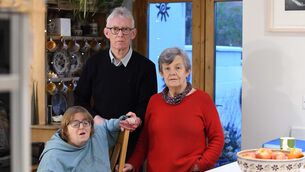Durex arrived, the pill happened, but the baby pressure stayed

A woman in England recently said she didn’t want to have babies. She said it in a blog and then on mainstream media. She is now famous, or infamous, depending on how you look at it, for not wanting to have babies.
Every headbanger who wasn’t busy trolling someone else at the time came out of the wirework to stab her for being unnatural, self-absorbed, unloveable, and intolerable. After all, went the argument, no woman in her right mind would stand up there on the BBC and state that she did not now want and would never want a babe in arms. Ever.












